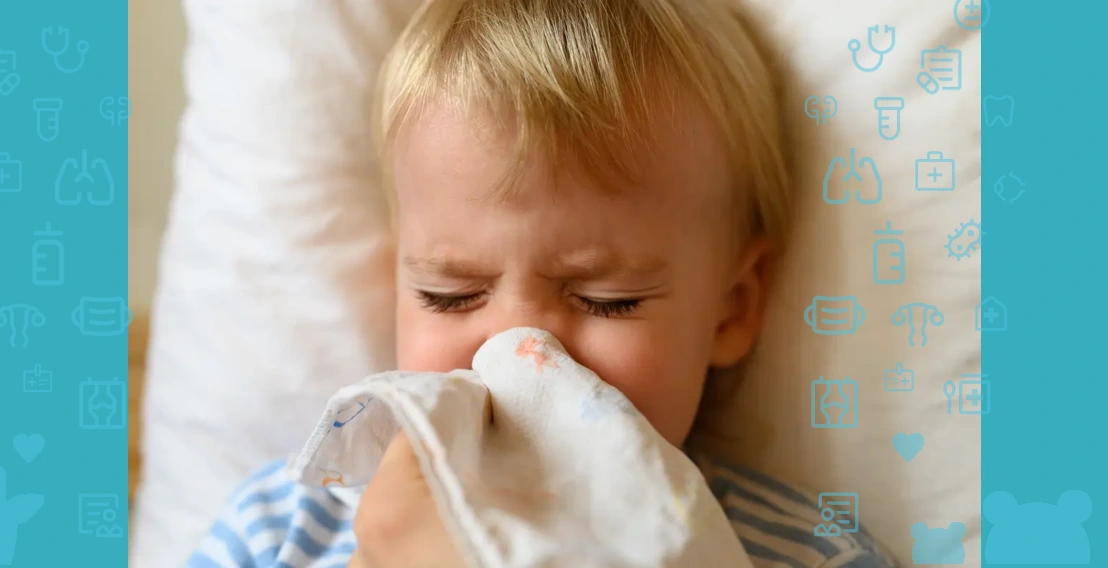Only a pediatrician can tell how to quickly cure a runny nose in a child . Therefore, at the first signs of rhinitis, you should consult a specialist. He will examine the baby, carry out a diagnosis and select the optimal method of treatment, taking into account the cause of the disease and the individual characteristics of the body.
Causes of runny nose
Most often, a runny nose in a child occurs as a result of hypothermia or a viral infection. Another common reason is the inability of the body to actively fight pathogens due to the immaturity of the immune system. The frequency of the disease increases when attending kindergarten, especially in the autumn and winter period.
The anatomy of the nose plays a significant role in the development of rhinitis. In young children, the mucous membrane is loose, and the sinuses are not sufficiently developed, which contributes to the stagnation of mucus and the appearance of swelling.
Runny nose can develop independently, but in most cases it is a manifestation of infectious diseases. Most often, it accompanies viral infections (SARS, influenza ). A runny nose can also have an allergic nature. In this way, the body is able to react to dust, smoke, mold, animal hair, plant pollen.
Symptoms of a runny nose
The first signs of rhinitis are swelling of the mucous membrane, which causes nasal congestion and difficulty breathing. Then the discharge from the nose (white, transparent, green, yellow) of different consistency becomes noticeable.
A severe runny nose may be accompanied by other symptoms:
- Pain and sore throat;
- Sneezing and coughing;
- Snoring and snoring during sleep;
- Humility;
- Increased temperature;
- General weakness and headache.
As a result, children become restless and cranky. They cry, refuse food, sleep badly.
In the absence of timely treatment, possible complications: sinusitis, sinusitis, ethmoiditis, adenoiditis, otitis.
Diagnosis of the common cold

At the initial consultation, the pediatrician asks the parents about the existing symptoms and studies the medical history. Then he examines the nose, throat and ears of the small patient, performs auscultation (listening). The doctor assesses the general state of health of the baby, the presence of characteristic symptoms (nasal congestion, mucous secretions, cough, sneezing, fever).
If the pediatrician suspects a bacterial infection, adenoiditis, rhinosinusitis, or allergic rhinitis, he may refer the child for additional examinations: a general blood test, analysis of nasal mucus (cytology), or nasal swabs. If necessary, the pediatrician will recommend consulting with other specialists (otolaryngologist , pulmonologist, allergist ).
Treatment of runny nose in babies
What to do when you have a cold? First of all, it is necessary to restore the ventilation of the nasal cavity and the drainage function. To achieve the goal, the baby's nose is washed 2-3 times a day with saline solution or special preparations with sea salt to moisturize the mucous membrane, remove mucus, reduce irritation and swelling.
Babies are additionally sucked off nasal secretions with the help of an aspirator. It is advisable to raise the headboard in the crib to facilitate the discharge of mucus, and before going to bed, give the baby warm tea or herbal decoction.
It is necessary to ventilate the room in order to reduce the concentration of bacteria and viruses in the air and moisten it.
What helps with a runny nose? In most cases, there is no need to use medications, the procedures listed above are quite sufficient. But at the same time, it is important to constantly monitor the baby's condition, and in case of worsening symptoms, consult a doctor. If necessary, he will select the safest drops or sprays.
Medical treatment is prescribed for:
- Bacterial infections (antibiotics);
- Allergic rhinitis (antihistamines);
- Development of complications.
When treating ARVI in children, it is important to follow the drinking regime and air parameters in the room, to ensure calmness, and also to avoid the use of unnecessary medications, especially antivirals that do not cure and antibiotics that harm. Only the immune system can overcome the virus (except the flu). The task of the pediatrician is to help transfer the viral disease as easily as possible and to adjust the treatment in time, if necessary.
Importantly! Any medication can be used only after a doctor's prescription and under his supervision. Uncontrolled intake of medicines can pose a serious danger to children's health, can cause an allergic reaction, "medication runny nose", atrophy of the mucous membrane, paresis of nasal vessels.
Prevention of runny nose
To minimize the risk of a cold, it is recommended:
- Harden the baby, strengthen his immunity;
- Maintain hygiene (thoroughly wash the child's hands after a walk and before feeding);
- Regularly clean the apartment, ventilate the rooms;
- Maintain air humidity at the level of 50-60%;
- Provide a full-fledged balanced diet;
- Treat SARS and ENT infections in a timely manner.
During epidemics, it is recommended to wash the child's nose with saline solutions to moisten the mucous membranes and clean them of crusts, bacteria and viruses.
